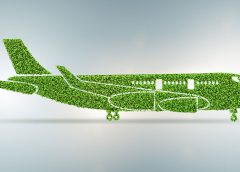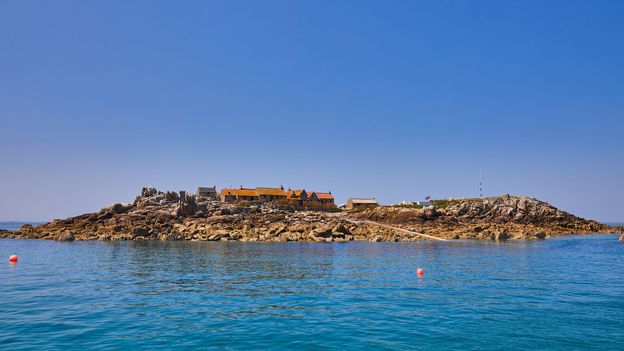
Will a global aviation emissions agreement survive the fall?: Travel Weekly
[ad_1]
IATA is warning that an international agreement designed to reduce airline emissions is in danger of collapsing when the U.N.’s aviation arm convenes for its general assembly this fall.
Environmental groups, however, question whether the carbon offset scheme, known as Corsia, has much value to begin with.
“We are very concerned, because this is the widest, biggest voluntary agreement on decarbonizing, and it has to take into account a variety of approaches to decarbonizing and also national policies,” said Sebastian Mikosz, IATA’s senior vice president for environment and sustainability.
But Jo Dardenne, aviation director for the U.K.-based advocacy group Transport & Environment, argues that Corsia’s reliance on offsets is no longer an effective way to address airline emissions, especially now that carriers have agreed to a target of net-zero emissions by 2050.
“The measures that we need for aviation to decarbonize now is to send signals that SAF [sustainable aviation fuel] is the solution,” she said, adding that national solutions, such as an EU plan to require that at least 5% of airline fuel be SAF by 2030, are needed to move the industry toward net-zero in 2050.
When the International Civil Aviation Organization (ICAO), which oversees the Corsia agreement, convenes in Montreal on Sept. 27, a key item on the agenda will be formal acceptance by the international community of the net-zero 2050 goal, which IATA airlines committed to last fall. Mikosz said he expects Corsia’s future to also be debated there as part of the broader net-zero conversation.
The pandemic’s impact
IATA’s angst over the future of the carbon offsetting scheme is being driven by changes that were implemented in 2020 due to the dramatic impact that the pandemic had on international flying.
When Corsia was passed in 2016, carriers were to be required to offset all international flight emissions in excess of the average of their 2019 and 2020 emissions once the program got underway. Countries whose airlines undertake approximately three-quarters of cross-border flying, including the U.S., are participating in the pilot period, which began in 2021. A three-year voluntary phase of Corsia is set to last from 2024 to 2026. From 2027 until the planned sunset of the scheme in 2035, participating in Corsia would be mandatory for countries worldwide.
But because emissions from 2020 were so far below what had been expected when Corsia passed, the ICAO decided that for the pilot period only emissions exceeding an airline’s 2019 level would need to be offset. The move delayed the onset of Corsia offset obligations, since most global carriers continue to fly smaller international schedules than they did in 2019.
The ICAO must now decide whether to stick with that 2019-only baseline for the scheme’s next two phases or revert to the much lower 2019-2020 baseline, which would require airlines to offset more.
The difference could be substantial. A late-2020 study by Transport & Environment found that a 2019 baseline would reduce by 50% the value of offsets airlines would be required to purchase through 2030 under Corsia compared to a 2019-2020 baseline. Meanwhile, IATA doesn’t expect global passenger traffic to return to the 2019 level until 2024.
A sharp divide among stakeholders
Mikosz and Dardenne said they expect a sharp divide during the assembly over whether to resume the 2019-20 baseline.
A strong proponent of the 2019-20 baseline will be the EU, which has been more strident about airline decarbonization than most of the world. The EU’s own Emissions Trading System (ETS) imposes far larger offsetting requirements on intra-Europe flights than Corsia does on international ones, even if the 2019-2020 baseline were to be reimposed. IATA estimates the per-ton offsetting requirements of ETS are approximately 10 times more costly than the Corsia requirements.
Conversely, said Mikosz, Brazil, India and Egypt are just some of the nations that can be expected to argue for the 2019-only baseline.
Dardenne said a potential compromise could come in setting the baseline somewhere between the 2019 emissions level and 2019-20 average. However, she questioned the usefulness of Corsia more broadly. The ICAO, she said, lacks enforcement power. So even if a country commits to the scheme, it requires the development of regulations at the federal level to achieve a reasonable assurance of compliance. Congress, she noted, hasn’t passed legislation that would enforce the offset commitments the country has made under Corsia.
Ultimately, said Dardenne, nations need to develop their own enforceable policies that require airlines to reduce emissions, rather than merely offset them. The EU’s planned sustainable fuel requirement is an example of such a policy.
IATA, said Mikosz, believes that it’s critical for the international community to tackle airline emissions collaboratively.
“I would be cautious to be very gentle and keep this fragile group together,” he said of the upcoming negotiations.
[ad_2]
Source link


